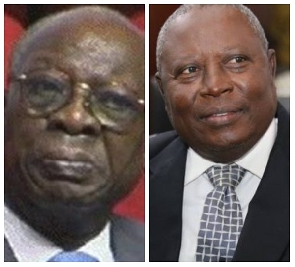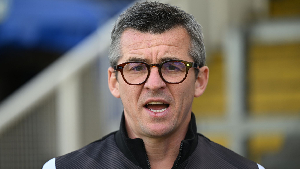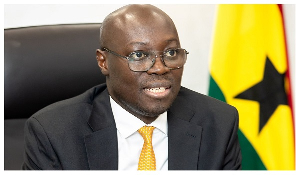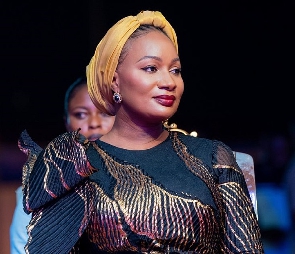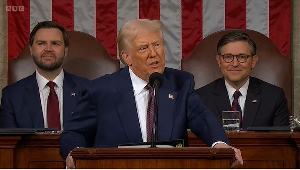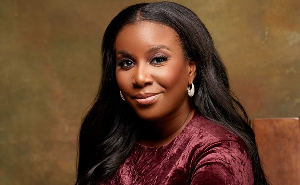The political history of Ghana cannot be written without a substantial mention of the events of December 31, 1981. Not only is it one of the four coups that plagued this country but it also is the last and perhaps most unpopular coup d’états in the political annals of the country.
But the positioning of the coup which toppled the democratically elected Limann government in 1981 could have been more profound and apparent in Ghana’s recent history had the New Patriotic Party not put up a legal fight in 1993-1994 to stop the then National Democratic Congress government from institutionalizing December 31 as a public holiday in Ghana.
On December 19, 1993, the government, through the Interior Minister, declared December 31 as a public holiday in commemoration of the coup as the day of the arrival of probity and accountability.
The New Patriotic Party, led by the late Peter Ala Adjetey as lead counsel, quickly registered its displeasure and ran to the Supreme Court seeking two reliefs which when granted, would make bogus and rubbish the declaration by the Jerry John Rawlings-led government.
“(1) A declaration that the public celebration of the overthrow of the legally constituted Government of Ghana on 21 December 1981, and the financing of such celebration from public funds is inconsistent with, or in contravention of the letter and spirit of the Constitution, 1992 and more particularly articles 3(3), (4), (5), (6) and (7) and 35(1) and 41(b) thereof.
(2) An order directing the Government of Ghana to cancel all preparations for the celebration of the overthrow of the legally constituted Government of Ghana on 31 December 1981 aforesaid and to refrain from carrying out any such celebration financed from public funds.”
Determined to see through with the institution of December 31 as public holiday, the state, led by the Attorney-General who was the defendant in the case, filed a response, questioning the court’s jurisdiction over a case that involves an action or decision taking by another arm of government.
The Attorney-General’s office, which was represented by then Deputy Attorney-General, Martin Amidu, argued that government had budgeted for the celebration of December 31, 1993 as public holiday therefore making moot the suggestion by the plaintiff (NPP) that state resources were now going to be commissioned into the celebrations.
It is worth noting that the NPP also filed a separate motion, demanding that an interlocutory injunction be placed on the celebration on December 31, 1994 before the substantive case was held.
Then the Chief Justice, aware of the significance of the ruling of the injunction case on the substantive case, quickly empanelled an 8-member jury which included himself, Archer CJ JSC, Adade Francois JSC, Abban JSC, Amua-Sekyi JSC, Aikins Jsc, Bamford-Addo JSC, Hayfron-Benjamin JSC and Ampiah JSC.
The Supreme Court agreed with the NPP. The court held amongst others that because the 1992 constitution enjoins Ghanaians to defend and resist any attempt to overthrow the constitution, the celebration of the 31st December coup with public funds weakens the resolve of Ghanaians to defend and protect the constitution.
Excerpts of the judgement by then Chief Justice, Philip Edward Archer read “The Constitution, 1992 gives the judiciary power to interpret and enforce the Constitution, 1992 and I do not think that this independence enables the Supreme Court to do what it likes by undertaking incursions into territory reserved for Parliament and the executive. This court should not behave like an octopus stretching its eight tentacles here and there to grasp jurisdiction not constitutionally meant for it. I hold that this court has no constitutional power to prevent the executive from proclaiming 31 December as a public holiday because the executive then would be applying an existing law in PNDCL 220 which can only be amended by Parliament.
“I have always held the view that this court like equity must not act in vain. In other words, it should not make orders that could be lawfully and legitimately circumvented so as to make the court a laughing stock. Under the Constitution, 1992 the President is the commander-in-chief of the Ghana Armed Forces. Suppose he accepts the declaration sought and confers with his commanders and service chiefs not to hold any route marches on 31 December 1993, yet the noncommissioned officers who were instrumental in staging the 31 December 1981 coup d’etat choose to parade through the streets of Accra, who can stop them? Is this court going to send judges, magistrates, registrars, court bailiffs and ushers to erect barricades in the paths of the marchers?
“Again suppose notwithstanding the orders of this court, the members of the governing party, and their allies choose to celebrate 31 December with picnics, processions and dances, who can stop them? I must confess that the more I ponder over the reliefs sought, the more I become convinced of the futility of the orders being sought. I think this is a case which requires realism, pragmatism and foresight on the part of this court”.
Read the full judgement
EK
General News of Sunday, 19 November 2023
Source: www.ghanaweb.com





